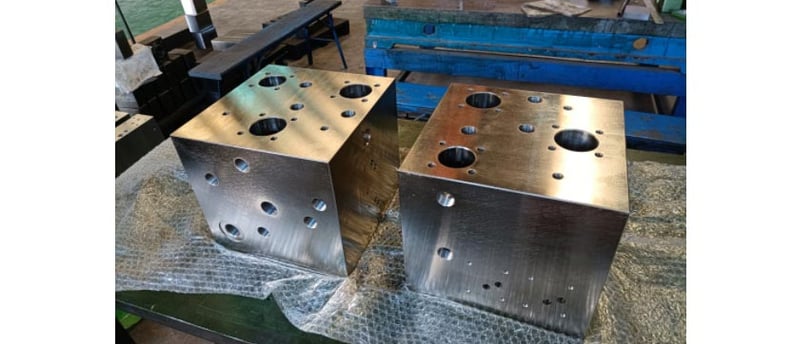Frequently Asked Questions About Hydraulic Valve Blocks
11/7/20242 min baca


What is a Hydraulic Valve Block?
A hydraulic valve block is a fundamental component in hydraulic systems that controls the flow and pressure of hydraulic fluid. These blocks are constructed from sturdy materials to withstand high pressures and are designed to regulate fluid movement throughout the system. Understanding how valve blocks function can significantly impact the efficiency and performance of hydraulic machinery.
What Types of Hydraulic Valve Blocks are Commonly Used?
There are several types of hydraulic valve blocks, including directional control valves, pressure relief valves, and flow control valves. Directional control valves manage the direction of the hydraulic fluid. Pressure relief valves ensure safety by preventing damage due to excessive pressure, while flow control valves regulate the speed of actuators by controlling the flow rate. Each type serves a specific purpose, and selecting the right one is crucial for the optimal performance of your hydraulic system.
How Do I Choose the Right Hydraulic Valve Block for My System?
Choosing the right hydraulic valve block involves assessing the specific needs of your hydraulic system. Factors to consider include the system pressure, flow rate, and type of application. It's also important to evaluate the compatibility of the valve block with other components in your hydraulic setup to ensure seamless operation. Consulting with a hydraulic specialist can also aid in making the right selection, as they can provide insights tailored to your unique requirements.
What Maintenance is Required for Hydraulic Valve Blocks?
Regular maintenance is essential for ensuring the longevity and reliability of hydraulic valve blocks. This includes routine inspections for signs of wear and tear, checking for leaks, and ensuring that seals and connections are tight. Additionally, keeping the hydraulic fluid clean and free of contaminants is crucial, as dirt and debris can impair performance and cause damage. Implementing a proactive maintenance schedule can help avoid costly breakdowns and extend the lifespan of your hydraulic components.
Can I Repair Hydraulic Valve Blocks Myself?
While some minor repairs, such as replacing seals or O-rings, can be performed by those with basic mechanical skills, more complex repairs or adjustments should be left to professionals. Hydraulic systems can be intricate, and improper repair can lead to severe system failures or safety hazards. If you're unsure about the condition of your valve block, it's best to consult a hydraulic technician who can accurately diagnose and fix the issue.
Conclusion
Hydraulic valve blocks play a vital role in hydraulic systems, and understanding their functionality can improve your equipment's performance. By being aware of the different types available, making informed choices, and implementing regular maintenance, you can ensure reliable and efficient operation. Should you have any more questions regarding hydraulic valve blocks, don’t hesitate to reach out for professional advice.
